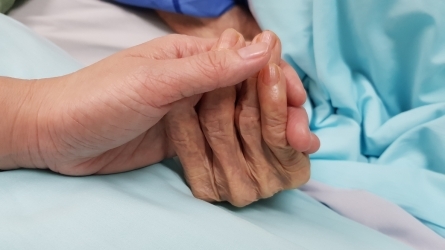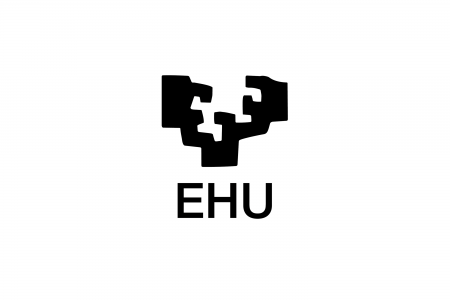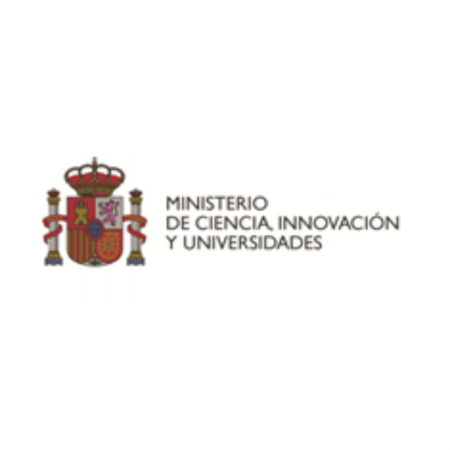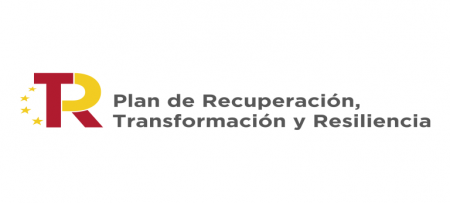
New perspectives and Needs in End-of-Life Care
Description
Click here to complete your pre-registration.
This training activity, targeted at professionals who care for patients in end-of-life contexts, aims to provide those professionals with resources to be able to face these terminal situations in patients, facilitating the management of the end-of-life process and protecting dignity of the patient. In this initial course, in addition to the physiological processes that take place in this situation, the psychological and spiritual aspects of the protagonists present in this process: patient, family and professionals, will be discussed.
The program aims to contribute to the training, education and accreditation of professionals who are dedicated to palliative care, participating in the solid development of the personnel involved.
Objectives
Understand the end-of-life process from a bio-psycho-socio-spiritual perspective.
Know and train to treat the symptoms present in end-of-life situations.
Learn effective communication strategies at the end of life with the patient and their family, in order to achieve effective decision-making and support.
Learning outcomes and type of achievement
Reconocimiento de la importancia del contexto cultural, social y psicológico, junto con los aspectos físicos de la enfermedad en el proceso de fin de vida.
- Demostración de habilidades, aptitudes y actitudes útiles en la relación terapéutica con el enfermo y familia en el contexto del fin de vida.
- Comprensión y facilitación de la muerte digna preservando los derechos del enfermo.
- Comprensión y profundización de conceptos relacionados con el final de vida como el alivio de síntomas, enfermedades en fases avanzadas o terminales, manejo de síntomas.
- Conocimiento de los principales síntomas y las características específicas que presentan en la enfermedad terminal.
- Demostración del conocimiento del manejo de síntomas presentes en la fase de final de vida y las intervenciones terapéuticas posibles: control de síntomas, manejo del sufrimiento y del dolor, sedación paliativa, suicidio asistido, eutanasia, entre otras.
- Comprensión y manejo de la comunicación de malas noticias, la conspiración de silencio, el proceso de luto, el soporte emocional, la toma de decisiones, en la relación terapéutica.
- Capacitación para fomentar y llevar a cabo una comunicación abierta y sincera con el enfermo y su familia considerando los deseos y necesidades de éstos.
- Capacitación en el manejo el afrontamiento del duelo y de proporcionar apoyo emocional al enfermo y familia.
- Conocimiento de estrategias ante el desgaste emocional y la fatiga de compasión del profesional.
Access prerequisites and admission criteria
The training is aimed at university graduates in healthcare-related fields—such as Medicine, Nursing, Psychology, and Social Work—who work directly with patients and their families during the final days of life, and who are interested in gaining knowledge and developing skills and strategies in care. Therefore, the relevance of the applicant’s degree to the area of study will be taken into account.
Applicants will be required to submit a Curriculum Vitae. In addition to verifying the qualifying degree, the CV will be reviewed and assessed based on professional experience and the applicant’s educational and career goals in the field of Palliative Care.
Required age: between 25 and 64 years old.
Level of learning experience according to EQF European Qualifications Framework
El nivel de aprendizaje en cuidados paliativos que se plantea con esta actividad formativa está dirigido a formar profesionales que, además de obtener un conocimiento teórico (conocimiento avanzado de los principios básicos de los cuidados paliativos, gestión de síntomas, estrategias de comunicación e integración de aspectos éticos y legales relacionados con la toma de decisiones al final de la vida), desarrollen habilidades competenciales técnicas y emocionales (ser capaz de aplicar de los conocimientos obtenidos y ponerlos en práctica en situaciones de final de vida), clave para la atención a pacientes en estado terminal. Se considera para la actividad un Nivel 7 en EQF (European Qualifications Framework) / Nivel 7 (Master o Grado Largo) en MECU (Marco Español de Cualificaciones para el Aprendizaje Permanente) / Nivel 3 en MECES (Marco Español de Cualificaciones para la Educación Superior)
ESCO, European Skills, Competences, Qualifications and Occupations competency frameworks
Methods of pain relief and improvement of quality of life for patients with serious illnesses.
Evaluation tests
- Thought-evaluations: 1. Written Reflections
- Experience evaluations: 1. Case studies based on real experiences
Activity directed to
- Professionals
Organised by
In collaboration with
Directors

Miren Agurtzane Ortiz Jauregui
UPV/EHU
Psychiatrist and doctor in Neurosciences. Master in Mental Health and Expert in Group Analysis. Professor of Neurosciences-Psychiatry at UPV/EHU. Professor of the Master's Degree in Healthy Aging and Quality of Life Academic Director of the Master's Degree in Comprehensive Care in Palliative Care Vice Dean of the Faculty of Medicine and Nursing (2004-2021). President of the Bilbao Academy of Medical Sciences (ACMB) and member of its Mental Health Section. President of the Basque and Multilingualism Section of ACMB. Director of the Bilbao Medical Gazette. Vice President and Secretary of the UZTAI Foundation for the Promotion of Mental Health. Member of the Ethics Commission of the College of Physicians of Bizkaia (2005-2018). Member of different university, medical and medical education societies and commissions. Author and co-author of various scientific works, books, book chapters and contributions to conferences in Basque, Spanish and English. He has participated in different groups and research projects. Research lines: Psychosocial Aspects of Getting Sick, Mental Health Promotion, lifestyle and prognosis of mental illness, Chronicity, aging, Teaching research.
Speakers

Miren Agurtzane Ortiz Jauregui
UPV/EHU
Psychiatrist and doctor in Neurosciences. Master in Mental Health and Expert in Group Analysis. Professor of Neurosciences-Psychiatry at UPV/EHU. Professor of the Master's Degree in Healthy Aging and Quality of Life Academic Director of the Master's Degree in Comprehensive Care in Palliative Care Vice Dean of the Faculty of Medicine and Nursing (2004-2021). President of the Bilbao Academy of Medical Sciences (ACMB) and member of its Mental Health Section. President of the Basque and Multilingualism Section of ACMB. Director of the Bilbao Medical Gazette. Vice President and Secretary of the UZTAI Foundation for the Promotion of Mental Health. Member of the Ethics Commission of the College of Physicians of Bizkaia (2005-2018). Member of different university, medical and medical education societies and commissions. Author and co-author of various scientific works, books, book chapters and contributions to conferences in Basque, Spanish and English. He has participated in different groups and research projects. Research lines: Psychosocial Aspects of Getting Sick, Mental Health Promotion, lifestyle and prognosis of mental illness, Chronicity, aging, Teaching research.
Registration fees
If the microcredential has already started there will be no refund of the enrolment fee.
Venue
Online and UPV/EHU Faculty of Medicine and Nursing
Barrio Sarriena s/n. 48940 Leioa
Bizkaia
Online and UPV/EHU Faculty of Medicine and Nursing
Barrio Sarriena s/n. 48940 Leioa
Bizkaia










